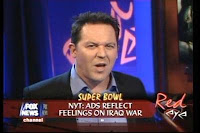Title: U.S. to Iran: Prove your nuclear program is peaceful
Source: CNN (website) - http://edition.cnn.com/2009/POLITICS/09/27/us.iran/index.html
Date: September 27th, 2009

The controversy surrounding Iran’s nuclear program after information revealing the building of a underground second uranium enrichment plant was disclosed publicly, is heavily prevalent and discussed in today’s news discourse. To further analyze the differing treatment of this topic from ranging news sources and platforms, I looked to the “Most Trusted Name in News” CNN (although they have been continuously scrutinized for being media bias and allegedly promoting both a conservative and liberal viewpoint) who have intensely covered this ongoing news story.
BACKGROUND INFORMATIONFirst and foremost, CNN reveals the plans for sanctions that will occur against Iran if it does not agree to comply with the rules and conditions set forth by the international community which are mainly to reveal with what intentions this plant was built with, a full investigative search of the facility, and if found to be created for harmful (i.e. nuclear weapons) means, its ultimate destruction. For now America and other powers use sanctions (on banking and equipment and technology for Iran’s oil and gas industry) as their main tool to threaten Iran into cooperating. However, the repor

t fails to mention the actual effectiveness that this technique will offer especially since sanctions such as this have not really proved to be too successful in the past with communist nations like Cuba, China and North Korea. It also makes it appear as if the powers of the world fully support Obama and his government’s decision. Russia, for example, may not be so keen on these sanctions as they depend on Iran for their oil needs.
ANALSYISYet again, America is illustrated as knowing what is best for the state of the world. I do not attempt to refute their “good” intentions but I just want to note that CNN always depicts its country as the primary voice for all other nations. If I compare this with my last posting, the BBC audio podcast, it is clear that the podcast focused more on what the leaders of other countries had to say, while this report remains more focused on U.S. senators, political leaders, people in power, etc. Chomsky would therefore argue that the first filter (size, orientation and ownership of the mass meda) is at play here for it is serving the interests of the dominant elite by strictly focusing on their stance. These people in power, or ‘elite thinkers,’ work to serve and act on behalf of the common good (i.e. disarming Iran).
To reiterate from the last posting: Matheson and Chomsky analyze how linguistics and semiotics work to shape rhetoric. They would thus argue that the rhetorical use of diction, grammar and tone sensationalizes the events in this article to evoke a particular reaction from the reader. Matheson argues in his
Discourse Analytic Perspective that a close analysis of the discourse used in a particular headline creates meaning that is not directly transparent. If we deconstruct the meaning of the title into its linguistic formula (word choice, grammer) and the preconceived notions of the media consumer, we begin to understand the particular social reality that is being reinforced. The intended reaction would be to stigmatize Iran while constructing an image of the U.S. as diplomats; hence the title (“U.S. to Iran: Prove your nuclear program is peaceful”) that has an authoritative tone to it and paints a black and white picture of the US and Iran encompassing the latter and former respectively. Clearly, the article seeks to portray the US as being diplomatic (very similar to the BBC podcast) and willing to undergo peaceful negotiations even though the terms of this new uranium enrichment facility are still vague. Matheson also speaks about labels which are as he explains “the act of labeling a person (or group or thing) defines how members of the society can understand and judge any action done by that person and allows them to generalize about them.” The article is essentially assigning labels to US and Iran (good vs. evil) since it sorts these nations into quite rigid social categories and compresses so much meaning into one word.
CNN did voice the opinion of Iran officials by quoting the director of the Iranian Atomic Energy Agency, but the overwhelming majority of viewpoints centered on the beliefs of the state, which essentially diluted Iran’s argument. It is quite clear that the propaganda model is at work here, specifically the first filter, “size, ownership, and profit orientation of the mass media.” Not one reputable American news source would dare to support Iran in this heavy debate for fears of heavier powers delivering blows to them mainly affecting their profits. In future posts, I will make sure to visit an Iranian media news agency to see their viewpoints on the issue.

Overall, Iran is being depicted as being and having always been non-compliant (i.e. race is represented as rebellious, an outsider). The news report goes on to describe how in the past Iran has always been ‘shady’ when it came to discussing its nuclear program. It is interesting to note that the United States actually knew of the previously secret Iranian enrichment plant before Iran reported its existence to the IAEA. This makes us question why the States would not have revealed it when they had first found out. Thus, the U.S. government is also being quite secretive in its own respect and the report fails to specify why the government chose to reveal it when it did. The only answer they provide the public with is one that kind of beats around the bush and does not give a clear response, “they wanted to make this news public at a time that would yield them most political gain”. If this was such a ‘serious threat’ why would the States risk the entire world’s safety for political gain? That is just simply and utterly irresponsible and the CNN chooses to stray away from actually questioning the authority of their government.

Barthes speaks of the denotation and connotation of photographs. The sole picture that accompanies the news story is that of the Secretary of State Hillary Clinton. The first order of signification is denotation, or objective association, that readers would make with the image. Based solely on the visual and a pre-existing knowledge, the association one makes would be that she is an elderly woman. However, the symbolic association (2nd order of signification) and connection that the media consumer of the article would make with her image is that of high power, affluence and authority (ideological connotation). Hamilton would thus argue that there is subjective representation inherent in this news article. Again, it is clear that the article is stressing the importance and influence of the viewpoints of those in power by choosing to insert a picture of Hilary Clinton as opposed to any others (e.g. picture of the actual uranium enrichment facility).
Overall, this specific news venue is inherently biased due to the way they narrowly represent the United States and its people in power. CNN concentrates too much on the righteous interests of its own nation and does not go to any lengths to reveal how other countries feel about this matter. Instead, they make a faulty generalization by making it appear as if all other countries feel the same way.
 Title: Lula backs Iran's nuclear programme
Title: Lula backs Iran's nuclear programme Luis Inacio Lula da Silva, the Brazilian president, who backs Tehran’s highly controversial nuclear programme said that "It's important that someone sits down with Iran, talks with Iran and tries to establish some balance so that the Middle East can return to a certain sense of normalcy." Up until now it appears as if world powers have isolated Iran and forced it to comply with their rules instead of seeking ways to push for peace and stability in the Middle East. The Brazilian president uses more conversational language to discuss the issue, "I told President [Barack] Obama, I told President [Nicolas] Sarkozy, I told [German] Chancellor Angela Merkel that we will not get good things out of Iran if we corner them. You need to create space to talk," he said last month. Of course, Al Jazeera also maintains its objectivity/journalistic integrity through the invocation of the ‘common ground’ and the coexistence of the ‘opposite opinion.’ (PowerPoint notes) Thus, it takes careful consideration to represent the views of the Brazilian opposition politicians in regards to this highly controversial matter.
Luis Inacio Lula da Silva, the Brazilian president, who backs Tehran’s highly controversial nuclear programme said that "It's important that someone sits down with Iran, talks with Iran and tries to establish some balance so that the Middle East can return to a certain sense of normalcy." Up until now it appears as if world powers have isolated Iran and forced it to comply with their rules instead of seeking ways to push for peace and stability in the Middle East. The Brazilian president uses more conversational language to discuss the issue, "I told President [Barack] Obama, I told President [Nicolas] Sarkozy, I told [German] Chancellor Angela Merkel that we will not get good things out of Iran if we corner them. You need to create space to talk," he said last month. Of course, Al Jazeera also maintains its objectivity/journalistic integrity through the invocation of the ‘common ground’ and the coexistence of the ‘opposite opinion.’ (PowerPoint notes) Thus, it takes careful consideration to represent the views of the Brazilian opposition politicians in regards to this highly controversial matter.  Matheson and Chomsky analyze how linguistics and semiotics work to shape rhetoric. They would thus argue that the rhetorical use of diction, grammar and tone in this article work to neutralize the issue and like the Brazilian president mentioned, “create space to talk” (i.e. the article is presented as being just and balanced on this issue). Evidence for this? For one, this is the only article out of the five that uses direct quotes from Iranian leader Mahmoud Ahmadinejad. Chomsky would also say that this news source is one of the more least likely ones to feel pressure from the five filters of The Propaganda Model. Meanwhile, Barthes would argue that the image accompanying the news story carries an ideological connotation; protests in Brazil, despite the support of their own president, show the growing fear of people in regards to nuclear Iran.
Matheson and Chomsky analyze how linguistics and semiotics work to shape rhetoric. They would thus argue that the rhetorical use of diction, grammar and tone in this article work to neutralize the issue and like the Brazilian president mentioned, “create space to talk” (i.e. the article is presented as being just and balanced on this issue). Evidence for this? For one, this is the only article out of the five that uses direct quotes from Iranian leader Mahmoud Ahmadinejad. Chomsky would also say that this news source is one of the more least likely ones to feel pressure from the five filters of The Propaganda Model. Meanwhile, Barthes would argue that the image accompanying the news story carries an ideological connotation; protests in Brazil, despite the support of their own president, show the growing fear of people in regards to nuclear Iran.














